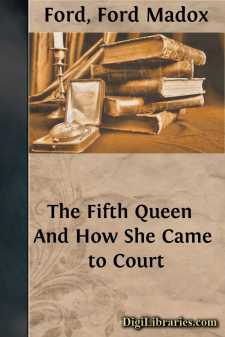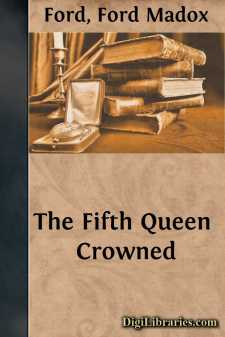Categories
- Antiques & Collectibles 13
- Architecture 36
- Art 48
- Bibles 22
- Biography & Autobiography 813
- Body, Mind & Spirit 142
- Business & Economics 28
- Children's Books 17
- Children's Fiction 14
- Computers 4
- Cooking 94
- Crafts & Hobbies 4
- Drama 346
- Education 46
- Family & Relationships 57
- Fiction 11829
- Games 19
- Gardening 17
- Health & Fitness 34
- History 1377
- House & Home 1
- Humor 147
- Juvenile Fiction 1873
- Juvenile Nonfiction 202
- Language Arts & Disciplines 88
- Law 16
- Literary Collections 686
- Literary Criticism 179
- Mathematics 13
- Medical 41
- Music 40
- Nature 179
- Non-Classifiable 1768
- Performing Arts 7
- Periodicals 1453
- Philosophy 64
- Photography 2
- Poetry 896
- Political Science 203
- Psychology 42
- Reference 154
- Religion 513
- Science 126
- Self-Help 84
- Social Science 81
- Sports & Recreation 34
- Study Aids 3
- Technology & Engineering 59
- Transportation 23
- Travel 463
- True Crime 29
Ford Madox Ford
Ford Madox Ford (1873–1939) was an influential English novelist, poet, and editor, best known for his modernist style and narrative innovations. His most famous works include "The Good Soldier" (1915), a novel about betrayal and moral disintegration, and the "Parade's End" tetralogy (1924–1928), which explores the effects of World War I on British society. Ford was also a co-founder of "The English Review" and played a pivotal role in promoting the works of other writers, including Joseph Conrad and D.H. Lawrence. His unique narrative techniques and psychological depth continue to influence contemporary fiction.
Author's Books:
Sort by:
by:
Ford Madox Ford
PART IITHIS is the saddest story I have ever heard. We had known the Ashburnhams for nine seasons of the town of Nauheim with an extreme intimacy—or, rather with an acquaintanceship as loose and easy and yet as close as a good glove's with your hand. My wife and I knew Captain and Mrs Ashburnham as well as it was possible to know anybody, and yet, in another sense, we knew nothing at all about...
more...
by:
Ford Madox Ford
The Magister Udal sat in the room of his inn in Paris, where customarily the King of France lodged such envoys as came at his expense. He had been sent there to Latinise the letters that passed between Sir Thomas Wyatt and the King's Ministers of France, for he was esteemed the most learned man in these islands. He had groaned much at being sent there, for he must leave in England so many...
more...
by:
Ford Madox Ford
Magister Nicholas Udal, the Lady Mary's pedagogue, was very hungry and very cold. He stood undecided in the mud of a lane in the Austin Friars. The quickset hedges on either side were only waist high and did not shelter him. The little houses all round him of white daub with grey corner beams had been part of the old friars' stables and offices. All that neighbourhood was a maze of dwellings...
more...
by:
Ford Madox Ford
THE MAJOR CHORD 'The Bishop of Rome——' Thomas Cranmer began a hesitating speech. In the pause after the words the King himself hesitated, as if he poised between a heavy rage and a sardonic humour. He deemed, however, that the humour could the more terrify the Archbishop—and, indeed, he was so much upon the joyous side in those summer days that he had forgotten how to browbeat....
more...





